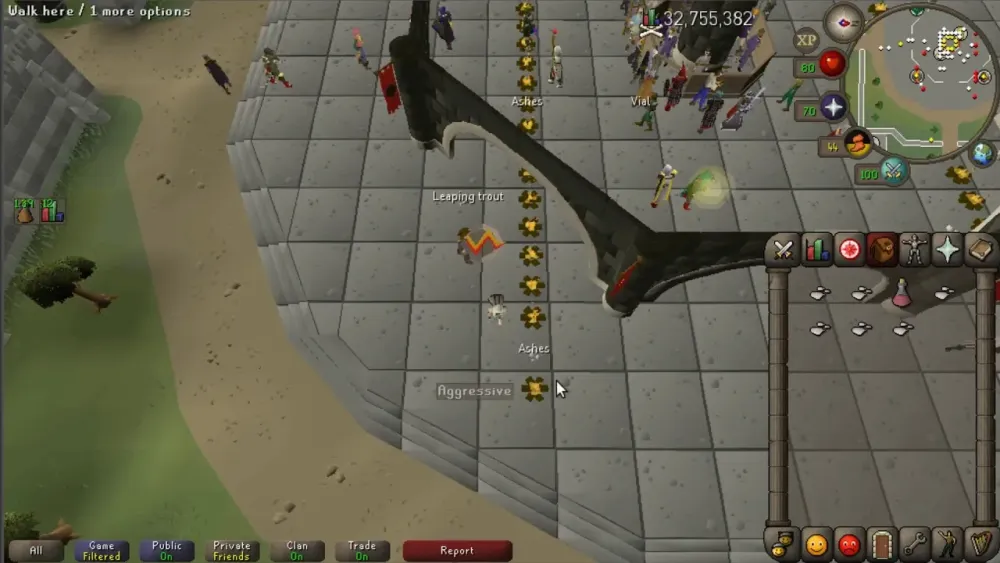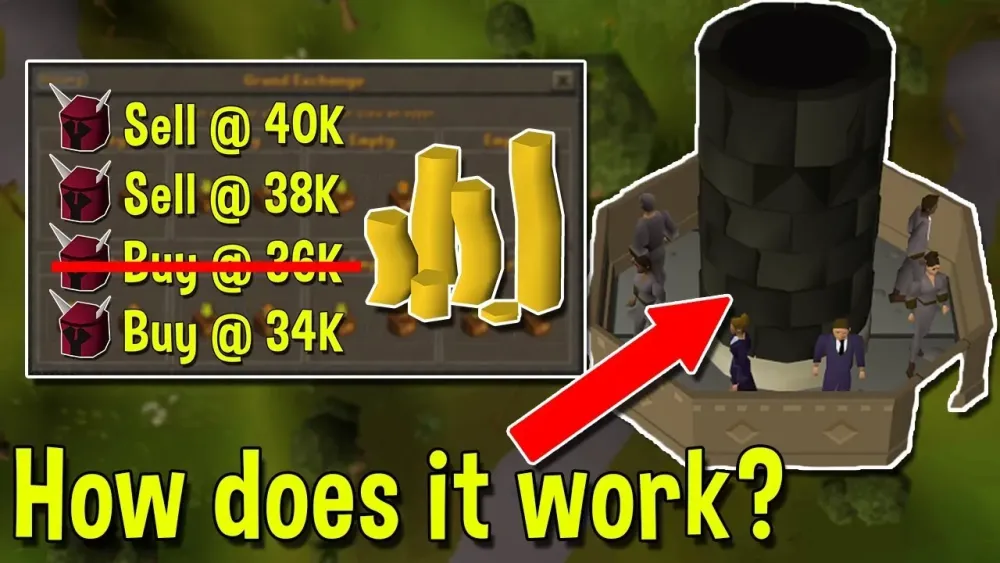Your cart is empty
OSRS Grand Exchange Market Watch Ultimate Guide

The Grand Exchange (GE) in Old School RuneScape (OSRS) is the heart of the game’s economy, a bustling marketplace where players buy and sell items with ease. The Grand Exchange Market Watch is an essential tool for tracking item prices, trends, and economic health, helping players make informed trading decisions. Whether you’re a seasoned merchant or a new player looking to profit, this guide dives deep into how the Market Watch works, strategies to maximize profits, and tips to navigate the GE like a pro.
The Grand Exchange Market Watch is a comprehensive resource that monitors and records prices and other data for items traded on the GE in OSRS. Maintained by the community and updated via automated bots, it provides real-time insights into item values and market trends. It’s a go-to tool for players looking to flip items, invest long-term, or simply stay updated on the game’s economy.
How It Works
The Market Watch pulls data from the official GE database and player transactions, offering guide prices that reflect the average traded value over the past 24 hours. These prices are influenced by supply and demand, with high-demand items rising in value and oversupplied items dropping. Bots like Gaz GEBot ensure daily updates, though manual contributions from players also keep the system robust.
Why It’s Important
Understanding price trends through the Market Watch helps players:
- Maximize profits by buying low and selling high.
- Avoid losses by spotting declining markets.
- Plan investments based on historical data and upcoming game updates.
Key Features of the Grand Exchange Market Watch

The Market Watch isn’t just a price list—it’s a dynamic tool with features designed to empower traders. Here’s a closer look at what it offers.
Real-Time Price Tracking
Prices are updated daily, reflecting recent trades. For low-volume items like partyhats, updates may occur weekly, but high-volume items like runes or logs see near-instant changes. This ensures you’re always working with current data.
Economic Indices
The Market Watch includes indices like the Common Trade Index (CTI), which measures the overall health of the OSRS economy. Starting at a base value of 100 on June 13, 2020, the CTI tracks price changes across commonly traded items. Other indices, such as Food, Metal, and Herb, focus on specific market segments.
High Alchemy Profit Tables
For players looking to profit via High Level Alchemy, the Market Watch provides tables showing items with the best return on investment (ROI). These tables factor in the cost of Nature Runes (currently 113 coins) and daily trade volumes to calculate maximum profits.
| Item | GE Price (Coins) | High Alch Value (Coins) | Profit (Coins) | Daily Volume |
|---|---|---|---|---|
| Rune Platebody | 38,000 | 39,000 | 887 | 5,000 |
| Dragon Bones | 2,800 | 2,880 | 67 | 50,000 |
How to Use the Market Watch for Profit
The Market Watch is a goldmine for players who know how to leverage its data. Here are proven strategies to turn GE trading into a profitable venture.
Flipping Items
Flipping involves buying items at a low price and selling them at a higher price within a short period. To succeed:
- Check margins: Use tools like GE Tracker to find items with high buy-sell price gaps.
- Focus on high-volume items: Items like runes, ores, or food trade frequently, ensuring quick flips.
- Be patient: Place buy offers slightly below and sell offers slightly above guide prices to maximize margins.
Example: Buy 1,000 lobsters at 200 coins each and sell at 220 coins each for a 20,000-coin profit per flip.
Long-Term Investing
Investing requires buying items at low prices and holding them until their value rises, often due to game updates or seasonal events. To invest wisely:
- Study trends: Use the Market Watch’s historical graphs to identify items at their lowest prices.
- Anticipate updates: Items like logs or herbs often spike when new content is announced.
- Diversify: Spread investments across multiple items to reduce risk.
Example: Stock up on yew logs before a Construction update, as demand typically surges.
High Alchemy for Passive Income
High Alchemy can turn low-value items into profit. Use the Market Watch’s alchemy tables to identify items where the High Alch value exceeds the GE price plus the cost of a Nature Rune. This method is ideal for players with limited time but high Magic levels.
Tools to Complement the Market Watch
While the Market Watch is powerful, combining it with third-party tools can enhance your trading efficiency.
GE Tracker
GE Tracker offers advanced flipping guides, real-time price alerts, and profit tracking. With over 679,000 users, it’s a favorite for merchants looking to optimize flips and monitor market trends.
OSRS Exchange
OSRS Exchange provides detailed price charts updated every 30 seconds, making it ideal for tracking fast-moving markets. Its high-alch profit calculator is a handy complement to the Market Watch’s tables.
Grand Exchange Central
Grand Exchange Central is an alternative to the official GE database, offering item pricing and trend analysis. It’s updated daily and includes features like watchlists for GEC members.
Tips for Success in the Grand Exchange
To dominate the GE, you need more than just data—you need strategy and discipline. Here are expert tips to elevate your trading game.
Understand Supply and Demand
Prices are driven by supply and demand. High demand with low supply (e.g., new quest items) pushes prices up, while oversupply (e.g., bot-farmed resources) drives them down. Use the Market Watch to spot these trends early.
Monitor Game Updates
Jagex’s updates can drastically affect item prices. For example, a new boss might increase demand for specific gear or consumables. Stay active on OSRS forums or Reddit (e.g., r/2007scape) to anticipate these shifts.
Avoid Common Mistakes
New traders often fall into traps that can wipe out profits. Avoid these pitfalls:
- Overpaying: Always check guide prices before buying.
- Ignoring trade limits: Each item has a 4-hour buy limit, so plan flips accordingly.
- Panic selling: If prices drop, hold items until the market stabilizes.
Leverage F2P vs. Member Limits
Members get eight GE slots, while free-to-play (F2P) players are limited to three. F2P players should focus on high-volume, low-margin items like food or runes to maximize their limited slots. Members can diversify across multiple markets.
The OSRS Grand Exchange Market Watch is a powerful ally for any player looking to thrive in Gielinor’s economy. By understanding its features, combining it with third-party tools, and applying smart trading strategies, you can turn the GE into your personal goldmine. Start small, experiment with flipping or alchemy, and gradually scale your investments as you gain confidence. With patience and the right data, you’ll be dominating the Grand Exchange in no time.

